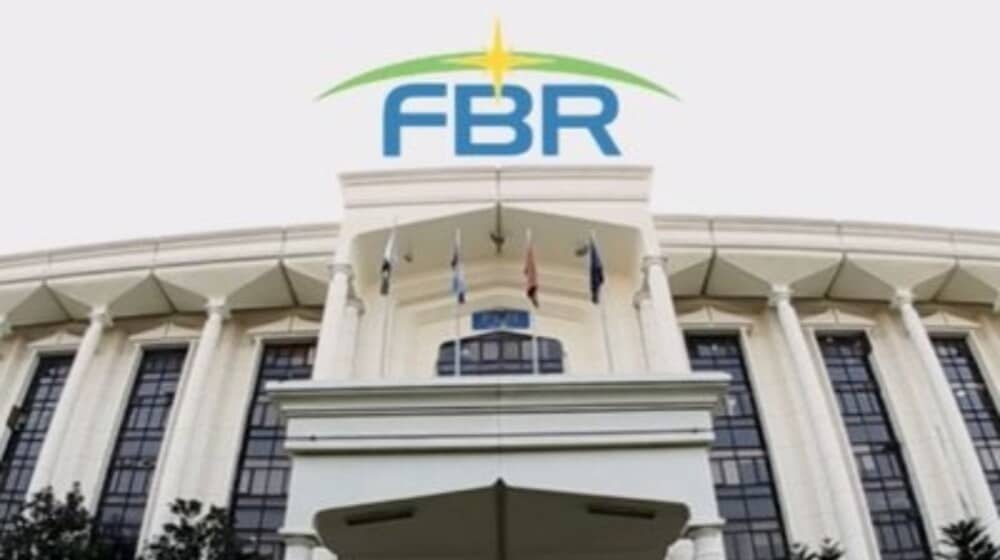
The Federal Board of Revenue (FBR) and the streets outside its field formations across Pakistan are simmering with discontent.
Scores of Inland Revenue employees, the very engine driving the state’s revenue collection, are gathered in protest.
Their demand is simple: justice and equality. The catalyst for this unrest? The recently issued Notification S.R.O. 604(I)/2025, dated April 16th, introduces a “Monetary Reward under FBR Transformation Plan, 2024,” exclusively for Cadre Officers of the Inland Revenue Services (IRS) in BS-17 and above.
On the surface, rewarding performance under a transformation plan sounds progressive. However, the devil, as always, lies in the detail – specifically, in the stark exclusion of the vast majority of the FBR’s workforce. Non-cadre officers, support staff, and even junior cadre officers below BS-17, who form the backbone of the Inland Revenue’s operations, find themselves conspicuously absent from this new incentive structure. This decision hasn’t just caused dismay; it has sparked outrage, drawing sharp comparisons to the divisive administrative tactics of a bygone colonial era.
One cannot help but see uncomfortable parallels between this SRO and the ‘divide and rule’ strategies employed during the British Raj. The colonial administration excelled at creating elite cadres within the civil services, bestowing upon them special privileges, status, and financial benefits, thereby separating them from the rank-and-file and fostering a sense of detachment. This created hierarchies designed not just for administration, but for control, ensuring loyalty from a select few while alienating the majority.
Is S.R.O. 604(I)/2025 inadvertently replicating this pattern? By earmarking significant monetary rewards, funded by the public exchequer, solely for the upper echelons of a single service group (IRS Cadre Officers, BS-17+), the FBR risks creating a privileged class within its own structure. It sends a disheartening message that the contributions of thousands involved in data entry, audits, taxpayer assistance, record-keeping, and administrative support – roles crucial to the success of any transformation plan – are somehow less valuable or unworthy of specific recognition under this initiative.
The architects of this policy might argue it’s designed to incentivize leadership driving the transformation. Yet, true transformation requires collective effort. It thrives on morale, teamwork, and a shared sense of purpose. A policy that blatantly favours one group, especially when funded by taxpayer money meant for the public good, achieves the opposite. It breeds resentment, damages morale, and fractures the very unity needed to achieve ambitious organizational goals.
Furthermore, the use of public funds necessitates public scrutiny. This isn’t an internal corporate bonus pool; it’s money collected from the citizens of Pakistan. Using it to create divisions and reward only a select bureaucratic elite, while ignoring the contributions of the wider workforce performing essential duties, raises serious questions about fiscal responsibility and fairness. It transforms an internal FBR policy into a matter of public concern – is this the most equitable or effective use of taxpayer money?
The ongoing protests are not merely about financial gain; they are a cry against perceived injustice, against being rendered invisible. The employees standing outside the FBR offices are demanding recognition and respect for all who contribute to the nation’s revenue generation.
The Senate’s Public Petition Portal is reportedly seeing a surge in filings against this SRO, indicating a widespread belief that this policy is fundamentally flawed. The FBR leadership and policymakers must heed these voices. Continuing down this path risks entrenching divisions reminiscent of colonial structures we supposedly dismantled decades ago.
Pakistan deserves a modern, equitable civil service where reward systems foster unity and recognize contribution across the board, not policies that echo the discriminatory stratagems of the past. It’s time to revisit S.R.O. 604(I)/2025 and replace it with a reward mechanism that truly reflects a commitment to fairness, inclusivity, and the effective use of public funds for all who serve.
About the Author
Written by the expert legal team at Javid Law Associates. Our team specializes in corporate law, tax compliance, and business registration services across Pakistan.
Verified Professional
25+ Years Experience
